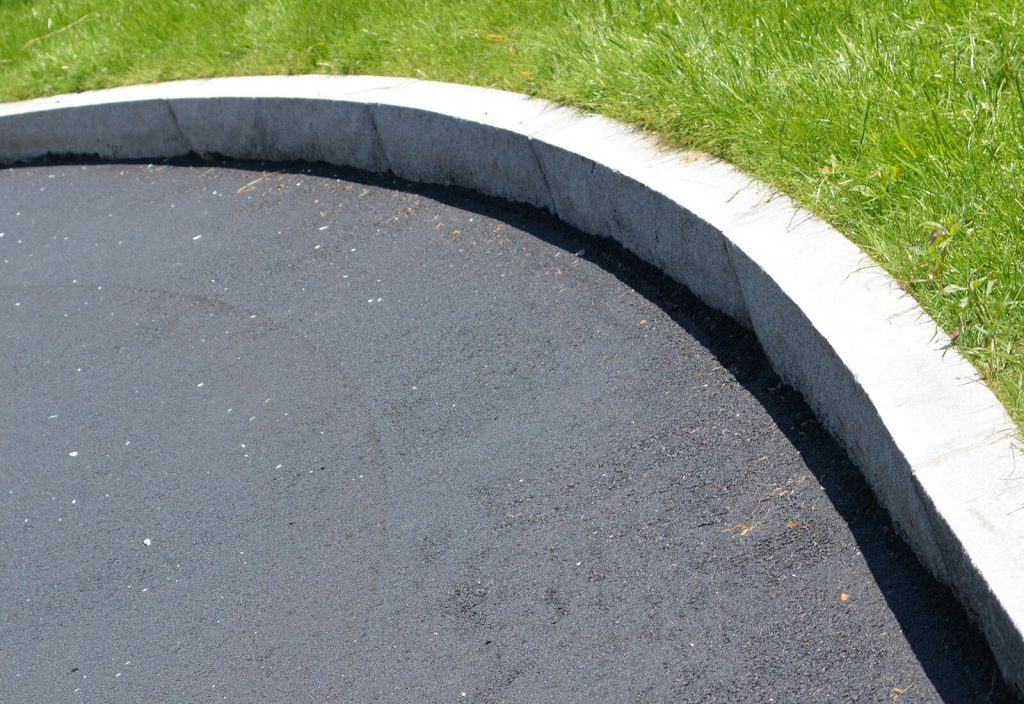10 Technical Advantages of Using Granite Curbing for Your Next Project
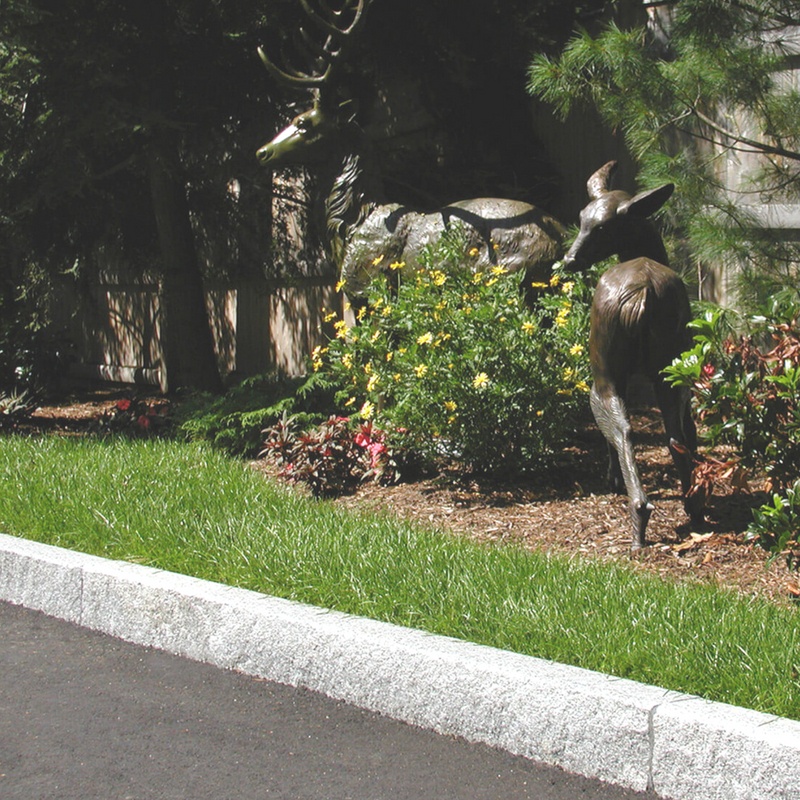
Functional elements are often the most important factors to consider when selecting curbing for commercial, residential and public properties. While the visual appeal of granite curbing speaks for itself, this versatile option offers a range of technical benefits for property owners to consider when planning their next project.
Granite curbing can be used for the following projects:
- State highways (Department of Transportation projects)
- Municipalities for roadway/sidewalk improvements
- Colleges/schools/universities
- Residential developments
- Commercial development
From durability and value to function and sustainability, the advantages of granite curbing from Swenson Granite Works exceeds alternative options.
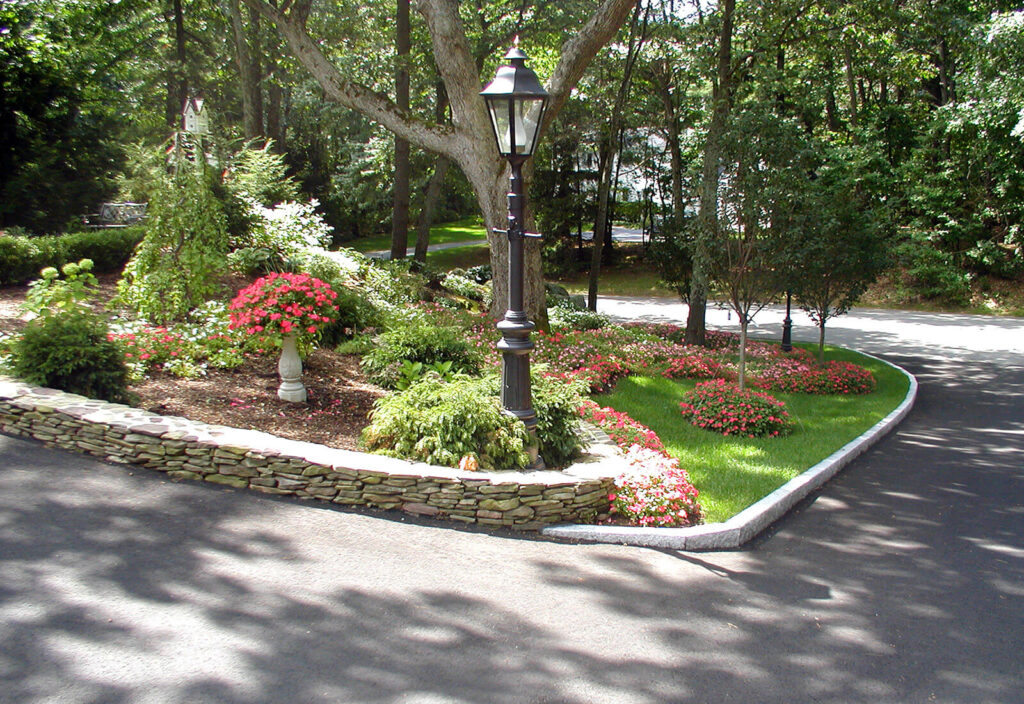
1. LIFELONG DURABILITY
Durability is critical for roadside curbing—especially in harsh climates with varying weather conditions and ice-melting chemicals.
“Granite is naturally durable and holds up to the freeze-thaw cycle of New England weather,” explains Leslie Shea, Manager of Granite Curbing Sales at Swenson Granite Works.
Concrete curbing is an inferior option that cannot compete with granite’s durability. According to American Granite Curb Producers, the lifespan of concrete curbing is only 20 years at best, assuming it is regularly maintained. In climates with severe winters, this lifespan will be much shorter.
“The lifespan of granite is indefinite,” Shea says, making it an excellent choice for specifiers and contractors.
2. Cost Savings
Some contractors choose cast concrete based on the assumption that it is less costly than granite. However, when the long-term costs of concrete maintenance, repairs and disposal are considered, this is far from correct.
According to the LifeCycle Cost Comparison by AGCP, the only advantage of precast concrete curb is its lower upfront cost. When upkeep, disposal fees, and the inevitable replacement costs of concrete curb are taken into consideration, granite is by far a more economical alternative.
As an added bonus, granite is routinely removed and reset during road construction projects.
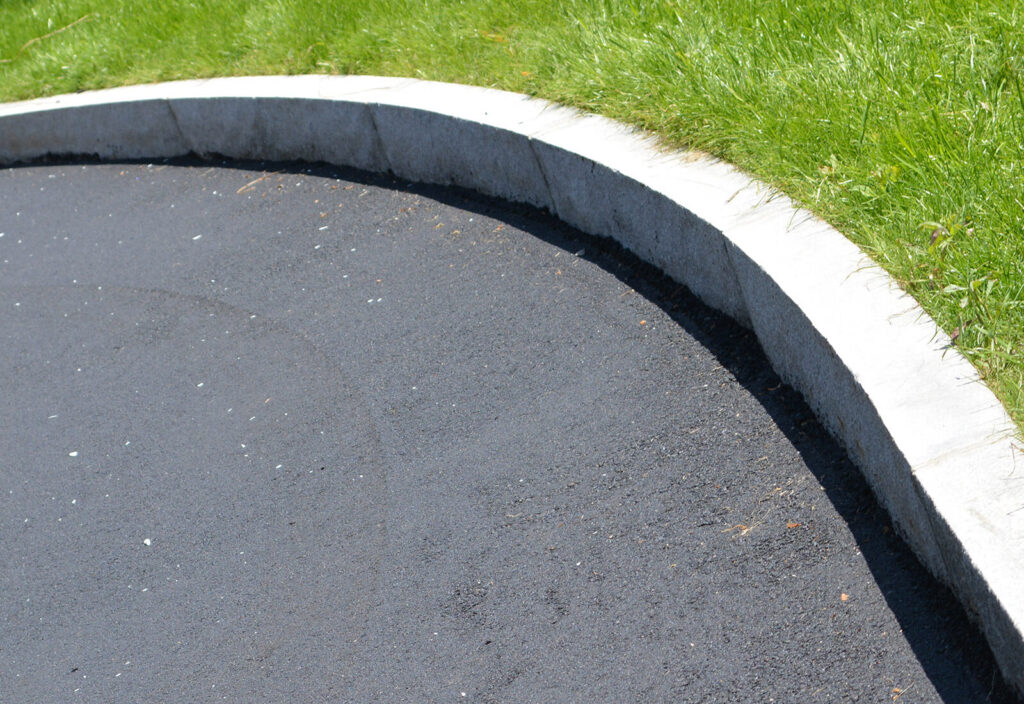
Granite curb is the cost-effective option for roadside borders and commercial development.
3. Virtually Maintenance-Free
Upkeep is important to consider before installing curbing, as routine maintenance can become costly and time-consuming. Concrete curbing materials can require everything from regular sealant applications to frequent repairs. Granite provides a virtually maintenance-free option.
Choosing granite will eliminate the costs of preventative upkeep, repairs, and replacements. After installation, customers can rest assured knowing that future curb maintenance will require little—if any—time and money.
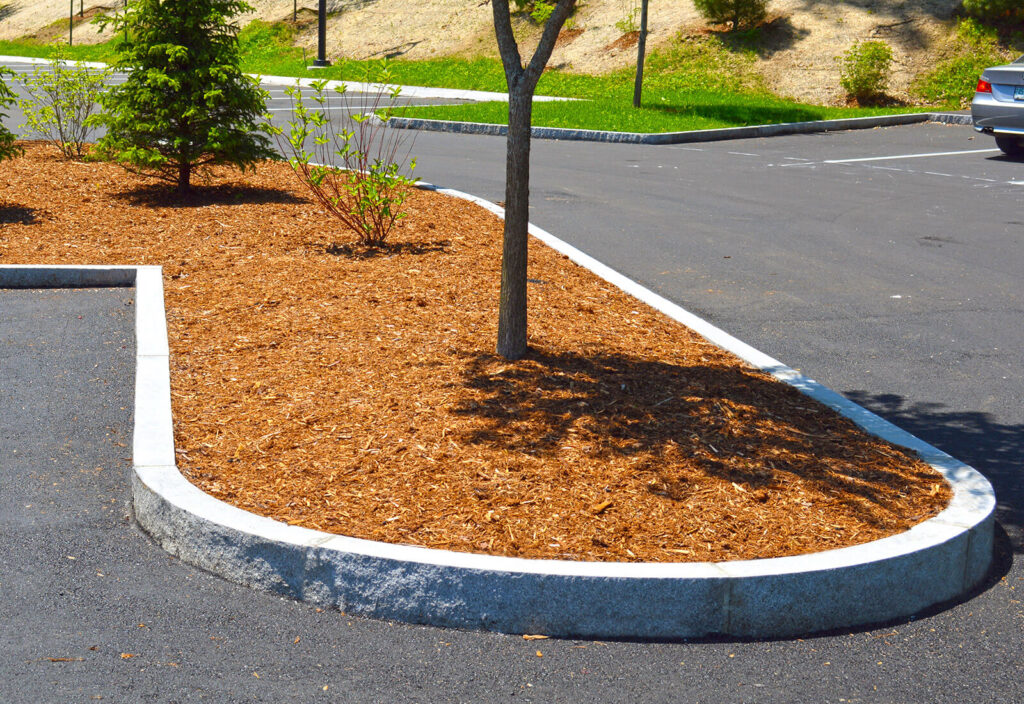
Vertical granite curbing gives this parking lot a clean, finished look.
4. Sustainability
Granite curbing also provides a sustainable alternative to other curbing options. “A product that is green, easy on Mother Nature, and has a positive environmental impact, as compared to concrete and asphalt,” says Shea.
The Guardian calls concrete “the most destructive material on earth”, explaining that the cement industry emits up to 2.8 billion metric tons of carbon dioxide per year. When concrete reaches the end of its lifecycle, it usually goes to a landfill, which has a further negative impact on the environment.
Granite offers a greener alternative that can be reset or repurposed in the future.
“Twenty years from now, (granite curbing) can simply be reused should there be a need to widen a roadway or change the configuration,” says Doug Carr, Vice President of Tri State Curb and customer of Swenson Granite Works.
5. Adds Value to Properties
High-quality granite curbing is an investment that can add both value and visual appeal to any applicable use. On the other hand, cracked and damaged curbs (concrete and asphalt) can lower the value of an otherwise desirable property.
Granite curbing creates a premium look and feel that can significantly benefit the resale of commercial property. While other materials will erode over time, granite curbing will remain intact and maintain its value for a lifetime.
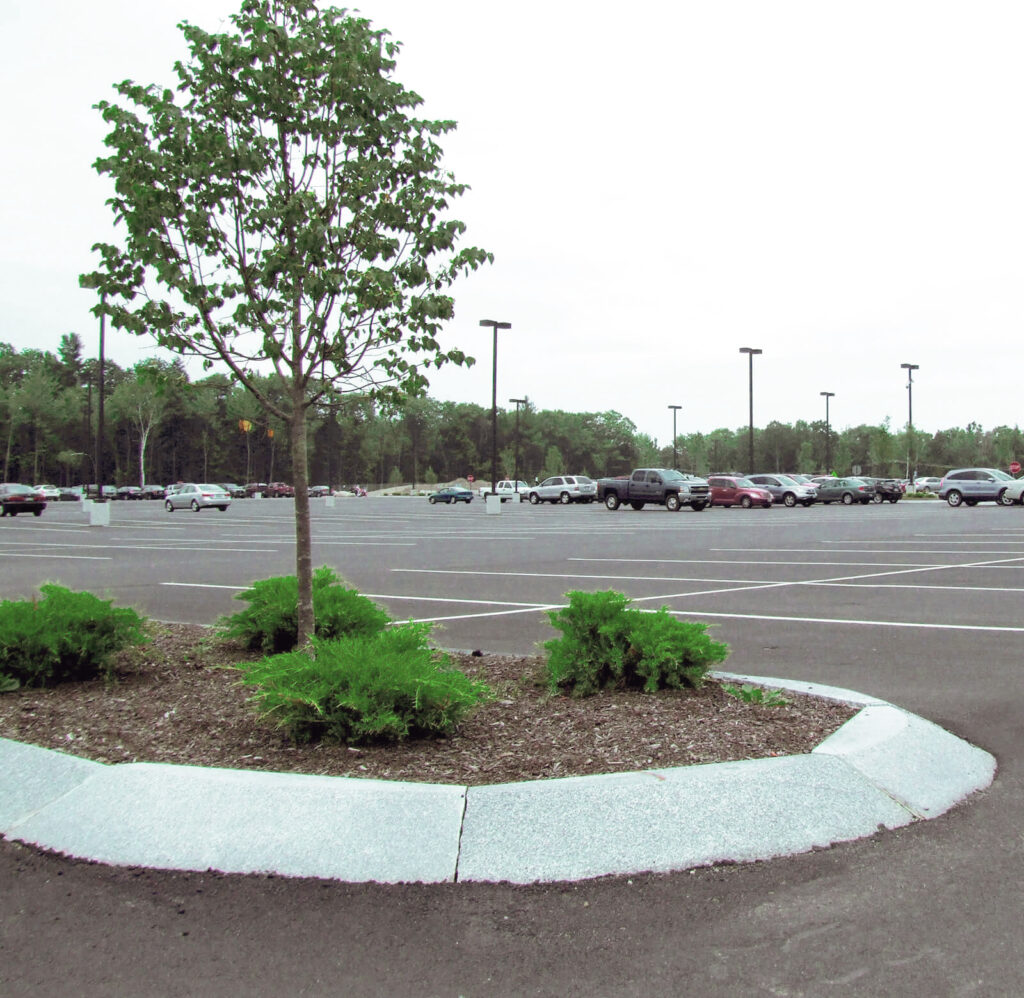
Sloped granite curbing creates a seamless transition from asphalt to planter bed in this parking area.
6. Withstands Extreme Conditions
Even more so than other hardscape features, curbing is likely to be exposed to abrasive conditions.
Asphalt milling, the process of removing and reconstructing the surface of a paved road, often leaves curbs susceptible to damage from heavy machinery. Fortunately, due to its resilient structural properties, granite curb can be left safely in place without damage during road milling procedures.
Weather-related maintenance can also pose a risk to concrete curbing. Road salt will erode concrete, causing it to crack and crumble. Over time, the frequent use of plows will break down concrete curb.
Granite has the highest density and strength of any curbing material and will easily withstand erosion in even the harshest conditions.
7. Prolongs the Life of Asphalt
Curbing keeps pavement intact by protecting the edges from cracking due to freezing and thawing, heavy moisture, and impact from motor vehicles and snow plows.
“Because the granite is more durable and will last longer than concrete, it holds the asphalt in place,” says Shea. “When concrete deteriorates, then the same is going to happen to the asphalt, as there is no longer a protective barrier.”
Using granite curbing will save the cost and hassle of repairing or replacing damaged pavement.
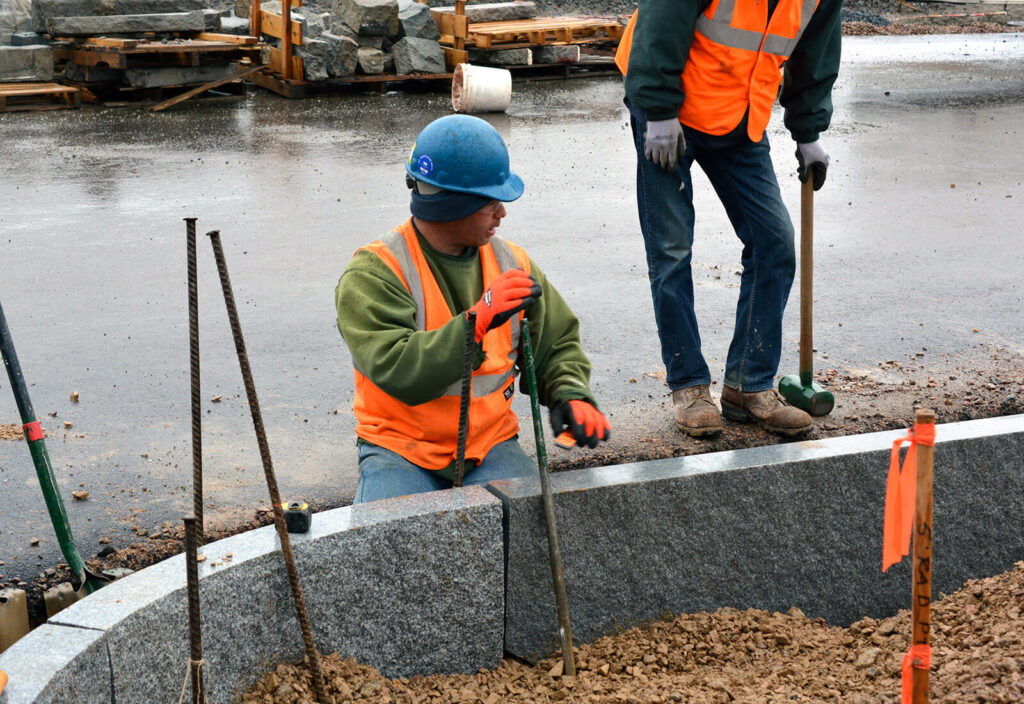
Durable granite prolongs the life of asphalt by holding it in place, preventing the need for frequent maintenance.
8. Simplifies Lawn Care
Granite curbing can help property owners protect their well-landscaped areas from the adverse effects of vehicles and snow plows. Over time, grass and weeds can travel from the lawn and spring up through cracks in the asphalt, which can lead to further pavement damage. Granite curbing can act as a root barrier, separating landscaping from the paved area.
During heavy precipitation, granite curbing can also prevent landscape material from washing away.
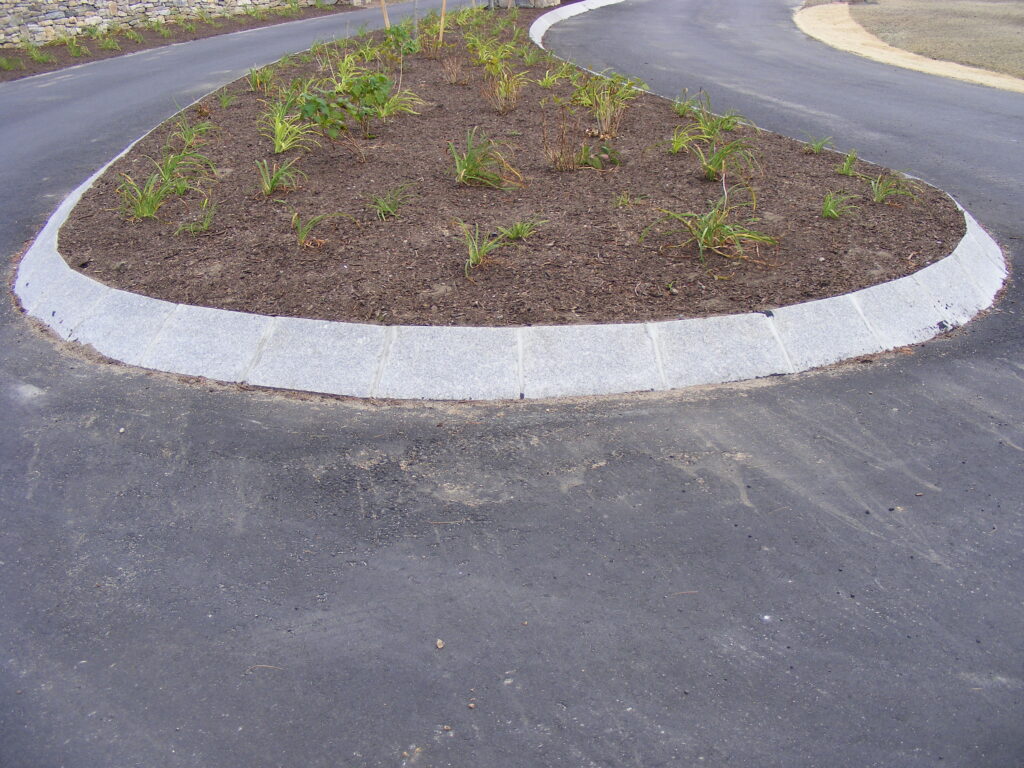
Sloped granite curbing functions as a root barrier.
9. Creates a Visual and Structural Landscape Barrier
Granite curbing accentuates the elements of commercial, residential and public properties. Not only can it be used to line a parking lot or roadway, but for a cohesive appearance, it can border landscape features, such as garden beds or walkways.
Lining a planter bed with curbing creates a barrier that will protect flowers, shrubs, and other softscape elements from vehicles and can help deter people from walking through flower beds.
Within Swenson Granite Works exists the capabilities and flexibility needed to create cut-to-order planters and other custom curbing.
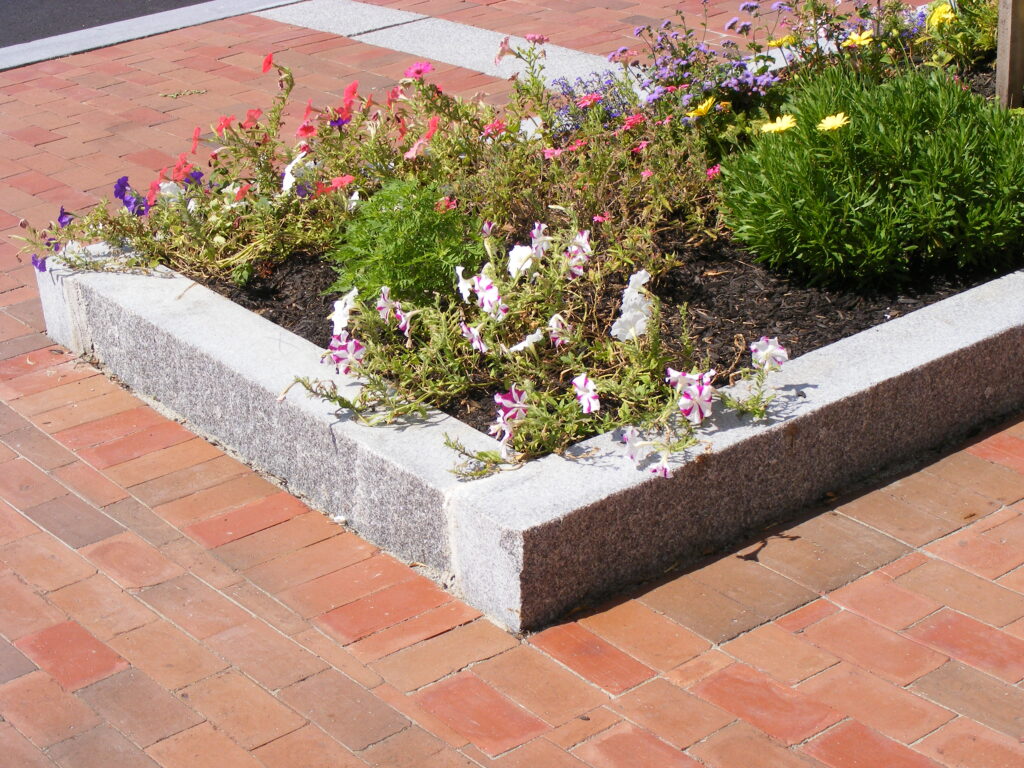
Vertical light gray granite curbing used as planter
10. Readily Available and Customizable
Swenson manufactures a large inventory of light gray granite curbing and stocks all the common sizes. With 100% natural stone sourced from Swenson’s own quarries, they are able to provide granite for any project size.
“We produce year-round, so we have a high volume of material in stock for the common granite curbing sizes” says Shea.
Swenson also custom fabricates granite products to accommodate specialty hardscape and masonry projects. Visit your local Swenson Granite Works retail location to learn more.
